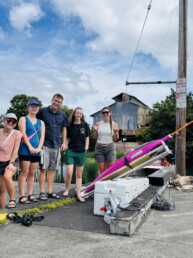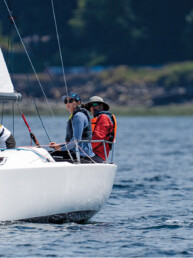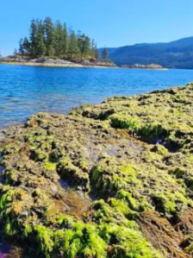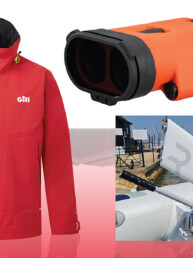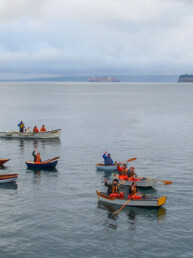The Coast Guard is Reminding PNW Boaters to be Aware, Conscientious, and Informed
The Coast Guard is encouraging all mariners to be vigilant on the water, and to follow all rules and regulations protecting our Pacific Northwest wildlife. USCG crews will be out in the San Juan Islands this summer educating boaters on the laws protecting our Southern resident Orca Whales and other marine mammals.
BE INFORMED
The organization Be Whale Wise provides local boaters with up-to-date information on local laws pertaining to marine mammals, as well as provides additional guidelines that will make you a safer boater and a steward of our natural resources.
The Salish Sea is home to many marine mammals, but most know it as the home of the Southern Resident Community of orcas or killer whales (SRKWs). This unique population of orca whales feeds on fish, preferably salmon, and lives in close family groups.
The Southern Resident orcas are listed as endangered in both Canada and the United States. Only 73 orcas remain as of June 2020. One of the best ways to help these whales is to Be Whale Wise!
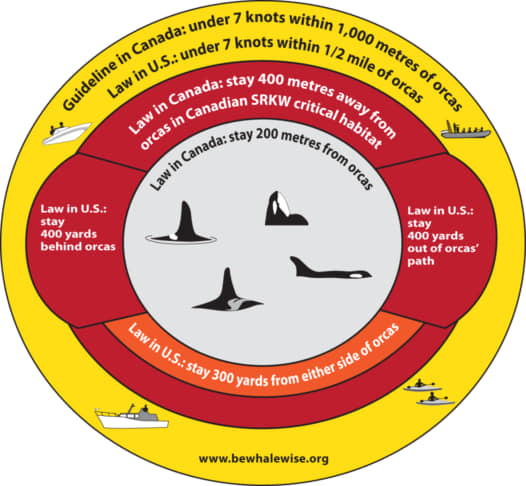
Please Follow These Whale Wise Guidelines:
1. DO NOT APPROACH or get too close to marine mammals or birds (see graphic above for distance laws).
2. BE CAUTIOUS, COURTEOUS and QUIET around areas of known or suspected marine wildlife activity, in the water or at haul-outs and bird colonies. When safe to do so, turn off fish finders and echo sounders.
3. LOOK in all directions before planning your approach or departure from viewing wildlife. Be vigilant for signs of marine mammal presence. Whales may change direction or surface unpredictably.
4. SLOW DOWN. Reduce speed to less than 7 knots when within a half mile of the nearest marine mammal to reduce your engine’s noise and vessel’s wake.
5. ALWAYS approach and depart from the side, moving parallel to the animal’s direction of travel. If the animal(s) are approaching you, cautiously move out of the way and avoid abrupt course changes. DO NOT approach from the front or from behind.
6. PLACE ENGINE IN NEUTRAL OR SHUTDOWN and allow animals to pass if your vessel is not in compliance with regulations.
7. PAY ATTENTION and move away, slowly and cautiously, at the first sign of disturbance or agitation.
8. STAY on the OFFSHORE side of whales when they are traveling close to shore.
9. ALWAYS avoid going through groups of porpoises or dolphins. Hold course and reduce speed gradually to discourage bow or stern-riding.
10. LIMIT your viewing time to 30 minutes or less. Consider number of vessels present to reduce the cumulative impact of all vessels and give consideration to other viewers.
CLICK HERE to report incidents of harassment or disturbance of marine animals
Editor
48° North Editors are committed to telling the best stories from the world of Pacific Northwest boating. We live and breathe this stuff, and share your passion for the boat life. Feel free to keep in touch with tips, stories, photos, and feedback at news@48north.com.


